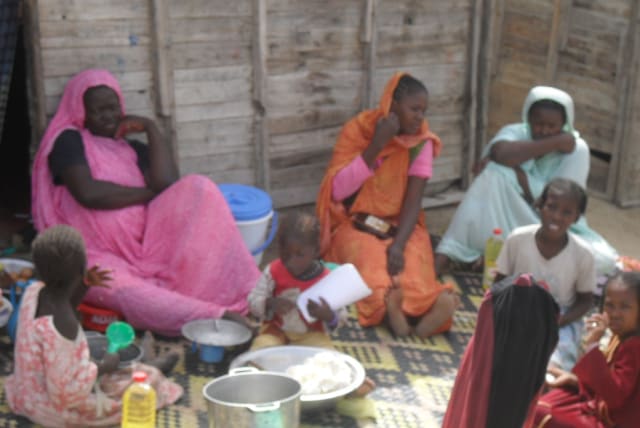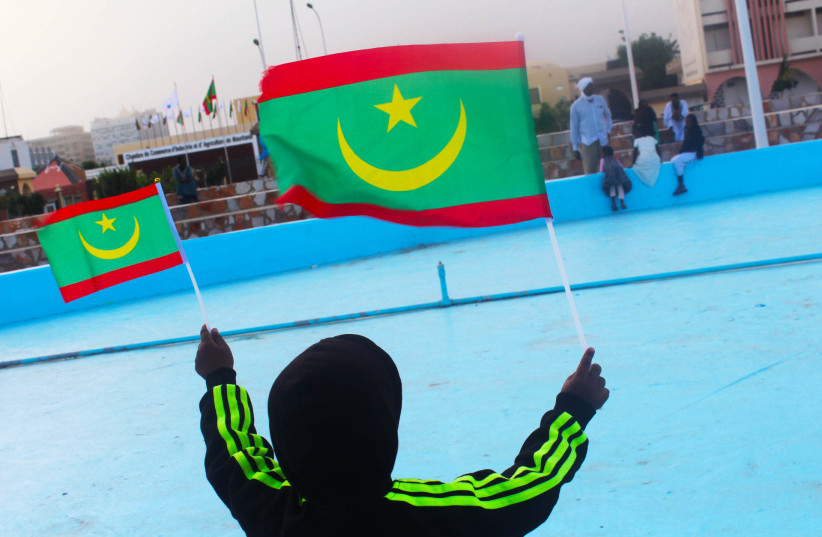Jews don’t own slaves, but some other people do - opinion

In at least four North African countries – Algeria, Libya, Mauritania, and Sudan – Arab and Arabized Muslim populations breed, buy, own, sell, and trade black Africans as slaves.
On Martin Luther King Day, Dr. J. Herbert Nelson II, a black pastor of the US Presbyterian Church, accused the Jews of Israel of enslaving Palestinians: “The continued occupation in Palestine/Israel is 21st century slavery,” he said, adding that Jewish leaders should “influence the call to join the US government in ending the immoral enslavement.”
When criticized, Nelson doubled down. Using the word slavery in this case, he said, “may seem extreme to many and, of course, offensive to most Israelis, but no one who is informed regarding the use of military power and racial bias to control the lives of Palestinian citizens can honestly avoid the truth of this situation.”
Many Jewish leaders rushed to condemn Nelson’s claims, which are ridiculous on their face: No Israeli has ever captured, bought, sold, tortured, or forced any Arab to work. Yet, critics failed to recognize that this black pastor charging Jews with race-based slavery was far, far more despicable than the typical yapping Israel endures daily.
Indeed, Pastor Nelson was extending to the Arab war against Israel one of Louis Farrakhan’s most legendary slanders against the Jews, clearly aimed at dividing Jews from their natural and historic allies in the black community. The Secret Relationship between Blacks and Jews, the Nation of Islam’s voluminous 1991 screed, vilified the Jews as the most prolific, and indeed devilish, participants in the trans-Atlantic slave trade. The book, published by the Nation of Islam’s historical research department, used distorted, disingenuously sourced, and cherry-picked data to frame the Jews in the eyes of American blacks as their primordial enemies. The real historical record, of course – as scholars like Eli Faber and the late Harold Brackman have demonstrated – is crystal clear: Jews were only a microscopic number of those thousands of Europeans who owned and sold slaves between the sixteenth and nineteenth centuries.
Calling Jews slavers not only denigrates them in a uniquely venomous way, but crucially, it also distracts from the monumental sin of Israel’s foes: Today and for 14 centuries, Arabs actually own black chattel slaves.
In at least four North African countries – Algeria, Libya, Mauritania, and Sudan – Arab and Arabized Muslim populations breed, buy, own, sell, and trade black Africans as slaves.
In Algeria and Libya, migrants heading for Europe, mainly fleeing poverty and violence in Niger and Nigeria, are captured by local Arabs who sell them into bondage. The men, often brutally beaten, are used as grunt labor with the women forced into sexual slavery. In 2017, CNN obtained chilling video of a slave auction where two black men were sold for the equivalent of $400 apiece.
Mauritania is a country divided into a racist caste system ruled by its 30% Arab-Berber minority, called beydanes, in which the culture takes the 70% black majority’s racial inferiority for granted. In 2011, a CNN investigation estimated that between 340,000 and 680,000 blacks were still owned as slaves in Mauritania – between 10% and 20% of the entire population of 3.4 million people. These slaves are bred by masters forcibly pairing slaves together and raping their female slaves. All children born to slaves are the masters’ property, with slaves passed down like furniture from one master to his sons. They are also horrifically tortured in ways which cannot be described in mixed company.
In Sudan, there remain an unknown number of blacks enslaved as part of a genocidal jihad by the Arab Muslim north against the Christians of what is today South Sudan during the Second Sudanese Civil War. Around 2.5 million blacks were killed in the war (1983–2005), with Arab tribesmen kidnapping an estimated 200,000 women and children as slaves in bloody raids on African villages. The little boys – often killed before they grew too large to subjugate – were used as goatherds, and the women and girls, subjected to clitorectomy, were made into domestics and concubines. The last estimate of those still owned as chattel slaves in Arab Sudan was 35,000.
While Pastor Nelson reserves his most passionate concerns for the Palestinians, whose plight he wrongly believes is identical to that of blacks in antebellum America, it is the distant Arab kin of today’s Palestinians – not the Jews – who ran the African slave trade on both sides of the continent. Acting as middle-men between African kings on the West Coast and the white traders on their dreaded ships, they marched millions of slaves across hundreds of miles of desert, with an estimated five out of six people dying en route before reaching the market. Neither African kings nor Arab invaders thought black lives mattered.
One would think that Nelson, as a minister of the Christian Church, would feel a certain responsibility to the truth – let alone not to bear false witness against the brethren of his savior. Sadly, for whatever reason, Nelson instead misuses the pain he feels about the enslavement of his black ancestors to slander the Jewish nation.
Perhaps even more sinful: what the great abolitionist Dr. David Livingstone called the “open sore of the world” still continues on the soil of Africa today, and Nelson could be using his pulpit to raise Western outrage against it. Instead, in service to an anti-Western ideology which sanctifies contempt for Jewish statehood – sadly in line with much PCUSA doctrine over the past two decades – Nelson is slandering the Jews, who do not own slaves, in favor of their enemies in the Arab and Muslim world who do. And it is precisely because he does this that so many enslaved souls continue to suffer in silence as the price of bigotry.
Charles Jacobs and Ben Poser are president and research director of Americans for Peace and Tolerance.
Jerusalem Post Store
`; document.getElementById("linkPremium").innerHTML = cont; var divWithLink = document.getElementById("premium-link"); if (divWithLink !== null && divWithLink !== 'undefined') { divWithLink.style.border = "solid 1px #cb0f3e"; divWithLink.style.textAlign = "center"; divWithLink.style.marginBottom = "15px"; divWithLink.style.marginTop = "15px"; divWithLink.style.width = "100%"; divWithLink.style.backgroundColor = "#122952"; divWithLink.style.color = "#ffffff"; divWithLink.style.lineHeight = "1.5"; } } (function (v, i) { });

